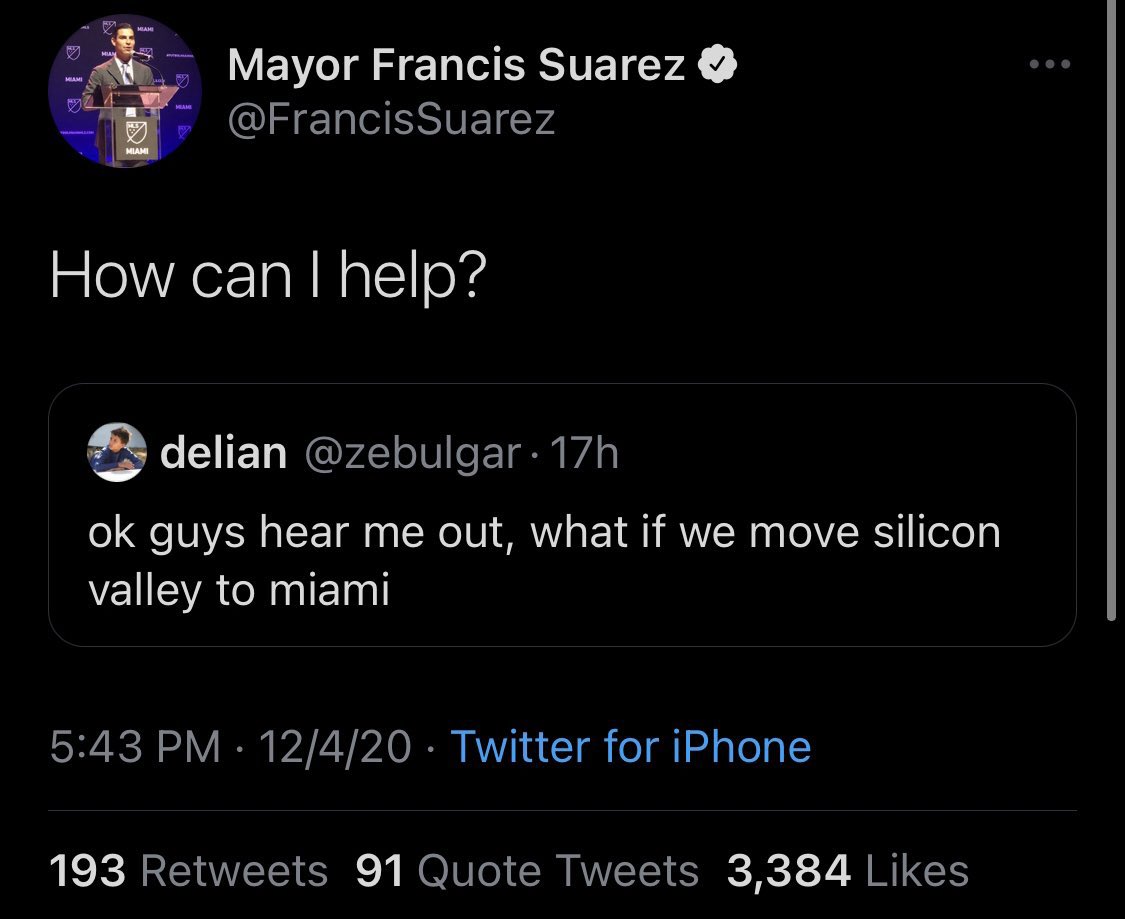
Miami is already the Singapore of Latin America. And Latin Americans understand the need for sound money.
So: Miami should hold a conference connecting all the Latin American financiers with all the crypto & tech people to talk Bitcoin!
So: Miami should hold a conference connecting all the Latin American financiers with all the crypto & tech people to talk Bitcoin!
https://twitter.com/francissuarez/status/1342135672224755712
As Wences Casares has discussed, the idea that the state could default, hyperinflate, or go communist is not theoretical to Latin Americans.
Witness Argentina, Venezuela, Cuba respectively.
So the use case for Bitcoin as a way to protect human rights is instantly understood.
Witness Argentina, Venezuela, Cuba respectively.
So the use case for Bitcoin as a way to protect human rights is instantly understood.
As @antoniogm has mentioned, Miami is already an important center for Latin American commerce and finance.
It’s a neutral zone with good banking where people from across the region can store their money and do deals.
It’s a neutral zone with good banking where people from across the region can store their money and do deals.
https://twitter.com/antoniogm/status/1276975776869408768
Finally, as de Soto has written, Latin America has been held back by an informal economy that lacks clearly defined property rights.
Crypto can mitigate this, as it’s rule-of-law as a service. Smartphones allow access to sound money & smart contracts. en.m.wikipedia.org/wiki/Hernando_…
Crypto can mitigate this, as it’s rule-of-law as a service. Smartphones allow access to sound money & smart contracts. en.m.wikipedia.org/wiki/Hernando_…
• • •
Missing some Tweet in this thread? You can try to
force a refresh






